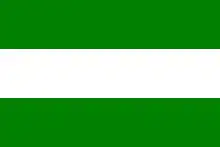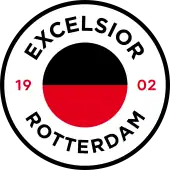 | |||
| Full name | Excelsior Rotterdam | ||
|---|---|---|---|
| Nickname(s) | The Kralingers Roodzwarten (red-blacks) The Wonder Oud papier-club (Paper recycling club) | ||
| Founded | 23 July 1902 | ||
| Ground | Van Donge & De Roo Stadion | ||
| Capacity | 4,500[1] | ||
| Chairman | Bob de Lange | ||
| Manager | Marinus Dijkhuizen | ||
| League | Eredivisie | ||
| 2022–23 | Eredivisie, 15th of 18 | ||
| Website | Club website | ||
|
| |||
Excelsior Rotterdam, commonly known as Excelsior, is a Dutch professional football club based in Rotterdam, Netherlands. They play in the Eredivisie, the top tier of Dutch football from the 2022–23 season following promotion. The club was founded on 23 July 1902 and was formerly known as "Rotterdamse Voetbal en Atletiek Vereniging Excelsior" (Rotterdam Football and Athletics Club Excelsior). Excelsior's home stadium is the Stadion Woudestein – for sponsorship reasons known as the Van Donge & De Roo Stadion – which has a capacity of about 4,500, one of the smallest stadiums hosting professional football in the Netherlands.
History
Early history
Excelsior were officially formed on 23 July 1902 as Rotterdamse Voetbal en Atletiek Vereniging Excelsior (English: Rotterdam Football and Athletics Club Excelsior). However, the initial founders of the club, a group of close friends located in the Kralingen district of Rotterdam, were already playing their football matches together on the fields of the eighteenth century buitenplaats Woudesteyn. After the actual establishment of the club, the municipality officially gave permission to use the land.[2] As football was still an elite sport at the beginning of the 20th century, Excelsior became one of the first working class clubs in the Netherlands.[3]
First successes
In the season 1945–46, Excelsior gained their first success by promoting to the Eerste Klasse, the highest tier of Dutch football before professional football was introduced in 1954. The deciding match against VUC was played in De Kuip and attracted 52.000 spectators. Excelsior relegated in the next season, but managed to promote for the second time in the season 1951–52. After the introduction of professional football, Excelsior won the Eerste Divisie championship three times (1974, 1979 and 2006) and promoted to the Eredivisie various times, usually to relegate not long afterwards.
Excelsior once reached the KNVB Cup final in the season 1929–30, but lost the match to fellow Rotterdam club Feyenoord (0–1). Excelsior's biggest pre-war achievement was the win of the Zilveren Bal trophy. Excelsior beat Feyenoord (5–0) in the finals of the highly rated pre-season tournament.[3]
Founding father of Dutch professional football
In the mid-fifties, Excelsior were the leading club behind the introduction of professional football in the Netherlands. When the KNVB continued to refuse payments in football, Excelsior chairman Henk Zon and board member Aad Libregts managed to persuade association president Hans Hopster, in cooperation with the directors of Feyenoord, Sparta and ADO Den Haag. In August 1954 the KNVB accepted the proposal and professional football was introduced in the Netherlands.
.png.webp)
Pioneers
Being the smallest professional club in Rotterdam, Excelsior always had to be creative to survive. This creativity made Excelsior play a pioneering role within Dutch football. In 1958 Excelsior became the first Dutch club with covered stands. Later, in 1974, Excelsior also were the first Dutch club with shirt advertising. Against the then existing rules, the club put an 'A' on the shirt. The character was supposed to stand for 'Team A', but in reality it stood for Akai, the company of main investor Rob Albers. The KNVB decided to ban the 'A' from the shirt and it would take until 1982 for shirt advertising to be introduced. Akai would adorn the shirts of Excelsior until the season 1999–00.[3]
Millennium
In 2002, the year in which the club was officially 100 years old, Excelsior returned to the Eredivisie. They did this after spending more than 20 years in the second tier of Dutch football. They were relegated after one season. In the 2005/2006 season Excelsior became champions of the Eerste Divisie and were promoted back to the Eredivisie once again.
Between 1997 and 2005 Excelsior had a partnership with Rotterdam rivals Feyenoord. Excelsior became Feyenoord's satellite club. As such, Feyenoord gave Excelsior money and players (either on loan or free transfer).
A majority of the Excelsior fans have always been against a partnership with Feyenoord. Michel van der Neut, chairman of Excelsior's supporters club, claimed: "Excelsior sold her soul with the extended partnership. Excelsior simply stops existing this way."[4]
Recent history
In 2010 Excelsior returned to the highest tier of Dutch football, after defeating crosstown rival Sparta Rotterdam in the final of the Eredivisie promotion/relegation play-offs. The team was mostly composed by Feyenoord loanees and was coached by former Feyenoord youth coach Alex Pastoor. In the 2010–11 season Excelsior made a flying start in the Eredivisie, gaining ten points in its first five matches, including a home victory in the Rotterdam derby against Feyenoord (3–2). In the remainder of the season, Excelsior upset some of the larger league teams at home, winning against AZ and getting draws against Groningen and eventual league champions Ajax. In the final match of the regular season, Excelsior got a 4–1 win away at Vitesse Arnhem, a result that left them one goal short of staying up. Finishing 16th, Excelsior had to face FC Den Bosch and Helmond Sport in the relegation / promotion play-offs. A 4–2 home win against Helmond sport ensured another season of Eredivisie football for Excelsior.
Excelsior finished bottom of the table in the Eredivisie at the end of the 2011–12 season, managing only four wins in 34 matches. The club was again relegated to the Eerste Divisie and has had ups and downs since. In the 2022–23 season Excelsior will be playing in the Eredivisie after being relegated in 2019.

Stadium
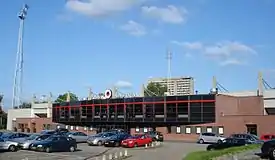
Excelsior's home venue is Stadion Woudestein, which has a capacity of 4,500 seats, one of the smallest stadiums hosting professional football in the Netherlands.
The club had two short spells at different locations. For the season 1907–1908 Excelsior played on the Afrikaanderplein. After returning to Woudestein, Excelsior moved to the Toepad terrain for seasons 1922–1939. When the Dutch government decided to build marine barracks on the Toepad area right before the start of the Second World War, Excelsior moved back to the familiar Woudestein.[3]
In the early nineties Excelsior went through a difficult period. The club barely survived a financial crisis, but a newly appointed board under the chairmanship of Martin de Jager had one important goal; a new Excelsior stadium. Various plans were made, one of them being a joint stadium for Excelsior and Sparta, but eventually none of the plans were implemented. Due to financial pressure, Excelsior decided to take the plunge and started renovating Woudestein themselves. The club built two new stands themselves and with the help of the municipality the main stand got renovated as well, including business seats and office space. On 31 July 2000, the new stadium was opened with a friendly match against Feyenoord.[5]
When Excelsior promoted to the Eredivisie after the season 2009–10, the club decided to replace the grass surface with artificial turf. Main reason for the change was the lack of financial resources to install under-soil heating, which is mandatory for clubs participating on the highest level of Dutch football.[6]
Supporters and rivalries
Paper recycling club
Excelsior is known as the Oud papier-club (paper recycling club), because former chairman Henk Zon often used to collect old paper in order to secure the financial position of the club.
Mascot
Since 2008 'Woutje Stein' is the official Excelsior mascot. He is named after the Woudestein-stadium.
Rivalries
Rotterdam is the city with the most professional teams in the Netherlands. Besides Excelsior there are Feyenoord and Sparta Rotterdam.
Rivalry against Feyenoord
Ever since the clubs used to work together Excelsior players and supporters have grown a more serious rivalry against Feyenoord. The majority of Excelsior supporters never wanted a cooperation with Feyenoord in the first place. On 22 May 2009, Excelsior supporters hosted a funeral as they felt like their club's identity had died due to the partnership with Feyenoord.[7]
In 2017 Excelsior won against Feyenoord (3–0), resulting in the latter not winning the Eredivisie title on that day. This resulted in riots.[8]
Rivalry against Sparta
Excelsior is from the Kralingen-neighbourhood and Sparta Rotterdam is from the Spangen-neighbourhood. Both clubs are not always playing in the Eredivisie, hence they play matches against each other in both the Eredivisie and the Eerste Divisie. The Feyenoord partnership Excelsior had in the past has resulted in more hatred from Sparta Rotterdam supporters.
One of the more spectacular matches between Excelsior and Sparta was the 2010 derby. Excelsior managed to gain promotion to the Eredivisie by winning against Sparta in the 94th minute of the match.[9]
Honours
League
Domestic results

Below is a table with Excelsior's domestic results since the introduction of the Eredivisie in 1956.
| Domestic Results since 1956 | ||||
|---|---|---|---|---|
| Domestic league | League result | Qualification to | KNVB Cup season | Cup result |
| 2022–23 Eredivisie | 15th | – | 2022–23 | second round |
| 2021–22 Eerste Divisie | 6th | Eredivisie (winning promotion/releg. play-offs) | 2021–22 | second round |
| 2020–21 Eerste Divisie | 9th | – | 2020–21 | Quarter-final |
| 2019–20 Eerste Divisie | 7th | – | 2019–20 | second round |
| 2018–19 Eredivisie | 16th | Eerste Divisie (relegation) | 2018–19 | first round |
| 2017–18 Eredivisie | 11th | – | 2017–18 | first round |
| 2016–17 Eredivisie | 12th | – | 2016–17 | second round |
| 2015–16 Eredivisie | 15th | – | 2015–16 | third round |
| 2014–15 Eredivisie | 15th | – | 2014–15 | Semi-final |
| 2013–14 Eerste Divisie | 3rd | Eredivisie (winning promotion/releg. play-offs) | 2013–14 | round of 16 |
| 2012–13 Eerste Divisie | 15th | – | 2012–13 | second round |
| 2011–12 Eredivisie | 18th | Eerste Divisie (relegation) | 2011–12 | third round |
| 2010–11 Eredivisie | 16th | – (surviving promotion/relegation play-offs) | 2010–11 | Fourth round |
| 2009–10 Eerste Divisie | 3rd | Eredivisie (winning promotion/releg. play-offs) | 2009–10 | Third round |
| 2008–09 Eerste Divisie | 5th | promotion/relegation play-offs: no promotion | 2008–09 | Round of 16 |
| 2007–08 Eredivisie | 18th | Eerste Divisie (relegation) | 2007–08 | Round of 16 |
| 2006–07 Eredivisie | 16th | – (surviving promotion/relegation play-offs) | 2006–07 | Third round |
| 2005–06 Eerste Divisie | 1st | Eredivisie (promotion) | 2005–06 | Second round |
| 2004–05 Eerste Divisie | 12th | – | 2004–05 | Second round |
| 2003–04 Eerste Divisie | 2nd | promotion/relegation play-offs: no promotion | 2003–04 | Third round |
| 2002–03 Eredivisie | 17th | Eerste Divisie (losing promo./releg. play-offs) | 2002–03 | Quarter-final |
| 2001–02 Eerste Divisie | 2nd | Eredivisie (winning promotion/releg. play-offs) | 2001–02 | Round of 16 |
| 2000–01 Eerste Divisie | 2nd | promotion/relegation play-offs: no promotion | 2000–01 | Round of 16 |
| 1999–00 Eerste Divisie | 4th | promotion/relegation play-offs: no promotion | 1999–00 | Round of 16 |
| 1998–99 Eerste Divisie | 6th | promotion/relegation play-offs: no promotion | 1998–99 | Second round |
| 1997–98 Eerste Divisie | 16th | – | 1997–98 | Group stage |
| 1996–97 Eerste Divisie | 17th | – | 1996–97 | Group stage |
| 1995–96 Eerste Divisie | 16th | – | 1995–96 | Group stage |
| 1994–95 Eerste Divisie | 3rd | promotion/relegation play-offs: no promotion | 1994–95 | Second round |
| 1993–94 Eerste Divisie | 12th | – | 1993–94 | Third round |
| 1992–93 Eerste Divisie | 14th | – | 1992–93 | Round of 16 |
| 1991–92 Eerste Divisie | 15th | promotion/relegation play-offs: no promotion | 1991–92 | Third round |
| 1990–91 Eerste Divisie | 19th | – | 1990–91 | Second round |
| 1989–90 Eerste Divisie | 14th | – | 1989–90 | Second round |
| 1988–89 Eerste Divisie | 3rd | promotion/relegation play-offs: no promotion | 1988–89 | First round |
| 1987–88 Eerste Divisie | 8th | – | 1987–88 | Round of 16 |
| 1986–87 Eredivisie | 18th | Eerste Divisie (relegation) | 1986–87 | Quarter-final |
| 1985–86 Eredivisie | 15th | – | 1985–86 | First round |
| 1984–85 Eredivisie | 12th | – | 1984–85 | Round of 16 |
| 1983–84 Eredivisie | 13th | – | 1983–84 | First round |
| 1982–83 Eredivisie | 9th | – | 1982–83 | Second round |
| 1981–82 Eerste Divisie | 3rd | Eredivisie (winning promotion/releg. play-offs) | 1981–82 | Round of 16 |
| 1980–81 Eredivisie | 17th | Eerste Divisie (relegation) | 1980–81 | Second round |
| 1979–80 Eredivisie | 9th | – | 1979–80 | Second round |
| 1978–79 Eerste Divisie | 1st | Eredivisie (promotion) | 1978–79 | Second round |
| 1977–78 Eerste Divisie | 4th | promotion/relegation play-offs: no promotion | 1977–78 | Semi-final |
| 1976–77 Eerste Divisie | 4th | promotion/relegation play-offs: no promotion | 1976–77 | Round of 16 |
| 1975–76 Eredivisie | 18th | Eerste Divisie (relegation) | 1975–76 | Second round |
| 1974–75 Eredivisie | 14th | – | 1974–75 | Second round |
| 1973–74 Eerste Divisie | 1st | Eredivisie (promotion) | 1973–74 | Round of 16 |
| 1972–73 Eredivisie | 17th | Eerste Divisie (relegation) | 1972–73 | Round of 16 |
| 1971–72 Eredivisie | 15th | – | 1971–72 | Quarter-final |
| 1970–71 Eredivisie | 16th | – | 1970–71 | Second round |
| 1969–70 Eerste Divisie | 2nd | Eredivisie (promotion) | 1969–70 | Second round |
| 1968–69 Tweede Divisie | 2nd | Eerste Divisie (promotion) | 1968–69 | Second round |
| 1967–68 Tweede Divisie | 16th | – | 1967–68 | Quarter-final |
| 1966–67 Tweede Divisie | 9th | – | 1966–67 | DNC |
| 1965–66 Tweede Divisie | 9th (group B) | – | 1965–66 | Group stage |
| 1964–65 Eerste Divisie | 16th | Tweede Divisie (relegation) | 1964–65 | Second round |
| 1963–64 Eerste Divisie | 9th | – | 1963–64 | Round of 16 |
| 1962–63 Eerste Divisie | 8th | – | 1962–63 | Third round |
| 1961–62 Eerste Divisie | 2nd | – | 1961–62 | ? |
| 1960–61 Eerste Divisie | 4th (group B) | – | 1960–61 | ? |
| 1959–60 Eerste Divisie | 11th (group A) | – | not held | not held |
| 1958–59 Eerste Divisie | 6th (group B) | – | 1958–59 | ? |
| 1957–58 Eerste Divisie | 7th (group A) | – | 1957–58 | ? |
| 1956–57 Eerste Divisie | 9th (group B) | – | 1956–57 | ? |
Current squad
- As of 11 January 2024
Note: Flags indicate national team as defined under FIFA eligibility rules. Players may hold more than one non-FIFA nationality.
|
|
Out on loan
Note: Flags indicate national team as defined under FIFA eligibility rules. Players may hold more than one non-FIFA nationality.
|
Player of the year
The Excelsior 'Player of the Year' award is voted for by the club's supporters, in recognition of the best overall performance by an individual player throughout the football season. The annual election is organized by the supporters club Pro Excelsior since 1996.[10][11]
|
|
Managers
Current staff
| Position | Name |
|---|---|
| Manager | |
| Assistant manager | |
| Assistant manager / technology strategist | |
| Team manager | |
| Goalkeeping coach | |
| Fitness coach | |
| Physio | |
| Physio | |
| Club doctor | |
| Kit manager | |
| Kit manager |
Former managers
|
|
Notable former players
The players below had senior international cap(s) for their respective countries. Players whose name is listed represented their countries while playing for Excelsior.
.svg.png.webp) Brett Holman
Brett Holman.svg.png.webp) Thomas Buffel
Thomas Buffel.svg.png.webp) Gill Swerts
Gill Swerts Michel Bastos
Michel Bastos Sebastián Pardo
Sebastián Pardo Patrick Mtiliga
Patrick Mtiliga Marc Nygaard
Marc Nygaard Jordan Botaka
Jordan Botaka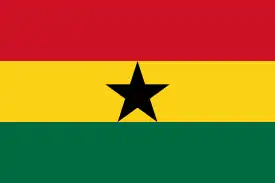 Christian Gyan
Christian Gyan David Connolly
David Connolly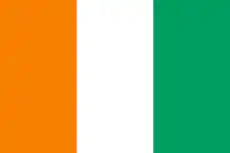 Salomon Kalou
Salomon Kalou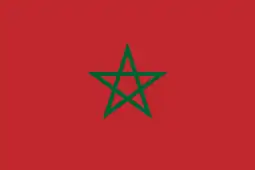
 Mounir El Hamdaoui
Mounir El Hamdaoui Mario Been
Mario Been George Boateng
George Boateng Winston Bogarde
Winston Bogarde Royston Drenthe (youth)
Royston Drenthe (youth) Tim Vincken
Tim Vincken Ferry de Haan
Ferry de Haan Oscar Moens
Oscar Moens Robin van Persie (youth)
Robin van Persie (youth) Graeme Rutjes
Graeme Rutjes Andwelé Slory
Andwelé Slory Gaston Taument
Gaston Taument Luigi Bruins
Luigi Bruins Kamohelo Mokotjo
Kamohelo Mokotjo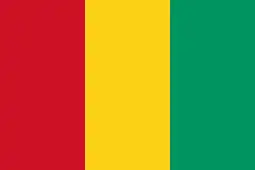 Ahmad Mendes Moreira
Ahmad Mendes Moreira Nol van der Vin
Nol van der Vin
References
- ↑ "Cookies op AD.nl – AD.nl". www.ad.nl.
- ↑ "De geschiedenis van Stadion Woudestein" [The history of Stadion Woudestein]. Supportersclub Pro Excelsior (in Dutch). Archived from the original on 26 May 2010. Retrieved 5 July 2010.
- 1 2 3 4 "Excelsior Historie" [Excelsior History]. SBVExcelsior.nl (in Dutch). Retrieved 30 June 2010.
- ↑ "Supportersvereniging roept op tot actie" [Supportersclub calls for action]. ERFC.nl (in Dutch). 21 May 2009. Archived from the original on 25 May 2009. Retrieved 2 July 2010.
- ↑ "Excelsior Stadion" [Excelsior Stadium]. SBVExcelsior.nl (in Dutch). Retrieved 21 August 2010.
- ↑ "Excelsior op kunstgras in eredivisie" [Excelsior on artificial turf in Eredivisie]. SBVExcelsior.nl (in Dutch). 4 June 2010. Retrieved 21 August 2010.
- ↑ "Supportersvereniging roept op tot actie - Excelsior Rotterdam FC". www.erfc.nl. Archived from the original on 25 May 2009. Retrieved 30 June 2022.
- ↑ "Rellen in Rotterdam na nederlaag Feyenoord bij Excelsior". 7 May 2017.
- ↑ Wedstrijdverslag op ELF Voetbal
- ↑ "Jeffrey Altheer beste speler 2008/2009" [Jeffrey Altheer best player 2008/2009]. ERFC.nl (in Dutch). 8 September 2009. Retrieved 5 July 2010.
- ↑ "Supportersclub". Pro Excelsior (in Dutch). Archived from the original on 26 September 2010. Retrieved 5 July 2010.
External links
- Official website (in Dutch)
- Excelsior fans (in Dutch) (archived 10 January 2007)
- Excelsior fansite (in Dutch) (archived 27 January 2007)
